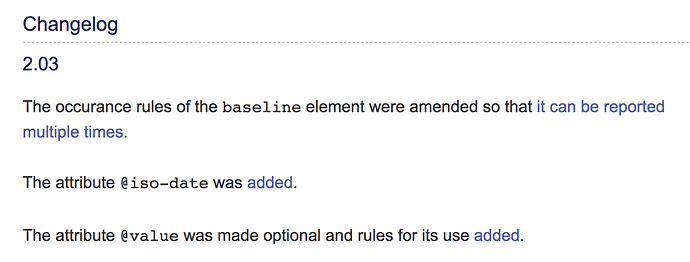True… But I don’t think it would be unnecessary here. Here’s an example of a repeated element in the docs:
<title>
<narrative>Activity title</narrative>
<narrative xml:lang="fr">Titre de l'activité</narrative>
<narrative xml:lang="es">Título de la actividad</narrative>
</title>
^^ This involves repetition of the narrative element. It’s super helpful, as it demonstrates why you’d use more than one narrative element.
Same for description, and for participating-org, and activity-date… There’s quite a lot of useful repetition in the example usage sections.
Intuitively, I’d only expect to find one baseline per result. It wasn’t immediately obvious to me why there’d be more than one. It’s because of disaggregations, and an example could help make this clear without having to read the original proposal.
I don’t think it’s easy to make sense of the results element from the documentation as it stands. If someone thinks it’s obvious, there’s a decent chance they’ve not understood it 


 Sooo it’s this small line, right ? Kinda difficult so spot it…
Sooo it’s this small line, right ? Kinda difficult so spot it…
